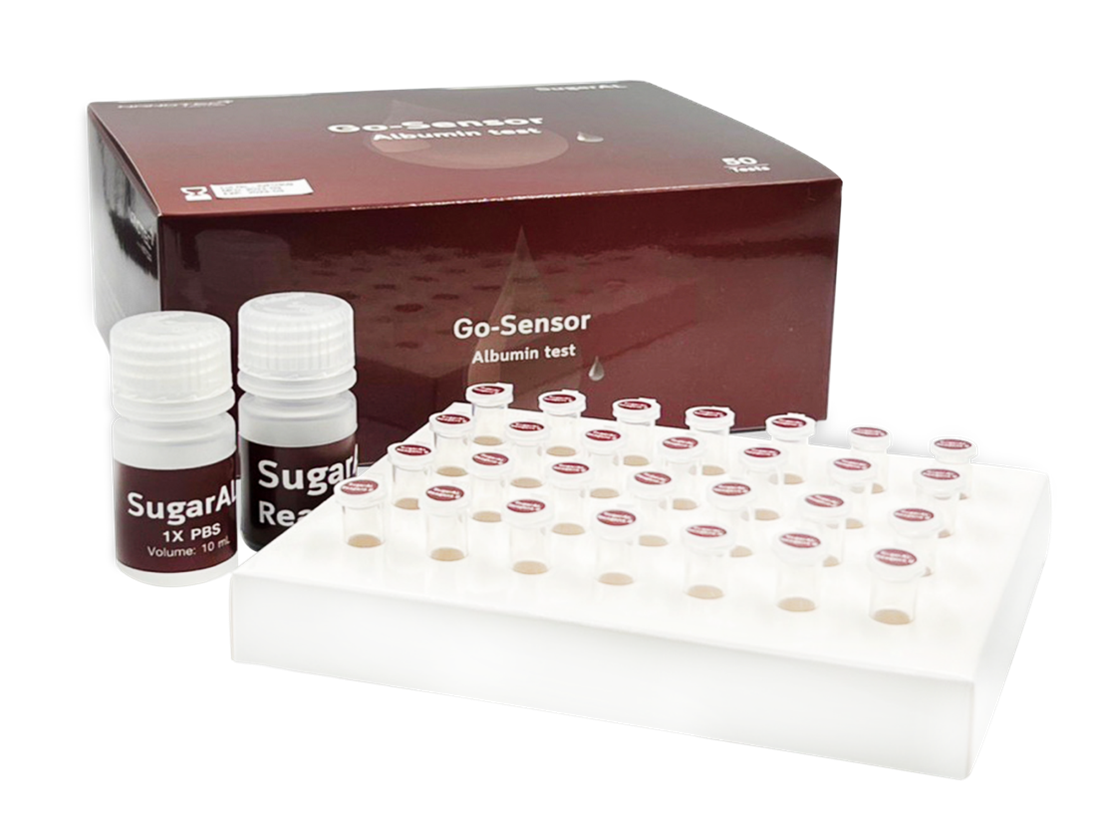Approximately 10% of the population worldwide suffer from chronic kidney disease (CKD), leading to one million deaths annually due to unaffordable treatment. In Thailand, particularly in the northeastern region, CKD prevalence was as high as 17-22% in 2009 (Thai SEEK data), reaching 26% in some areas (CKDNET data in 2022). Most patients become aware of their kidney disease in stages 3-4 or when symptoms manifest, requiring expensive kidney dialysis that can cost up to THB 200,000 Baht per person per year. Timely detection can prevent kidney damage through lifestyle modifications and medication. Thus, early detection is essential.
Kidney disease screening in Thailand can be prohibitively expensive for the majority of the population, with costs ranging from hundreds to thousands of Baht, depending on the precision of the test. In addition, screening services are inadequately available, primarily restricted to well-equipped large hospitals or private laboratories..

To make CKD screening more affordable, NANOTEC-NSTDA, in collaboration with partner organizations, introduced two tests: AL-Strip and GO-Sensor Albumin Test. Dr. Deanpen Japrung, Director of Responsive Material and Nanosensor Research Group at NANOTEC, explained that AL-Strip is a qualitative test designed for home use with results available within 5 minutes, while GO-Sensor Albumin Test, on the other hand, is a quantitative kidney disease test for medical professionals providing results within 10-30 minutes.

The AL-Strip is easy to use by placing a urine sample on the testing strip and interpreting the results based on the displayed color bands. Detection of albumin levels exceeding 20 micrograms per milliliter is indicated by a single-color band, signifying a high risk for kidney disease. The individual should undergo a detailed examination at a healthcare facility. If abnormalities are detected in the early stages, lifestyle changes are recommended to slow kidney deterioration and restore kidney function. Not only is the test easy to use, but it is also affordable, facilitating regular kidney function monitoring and reducing the number of CKD patients in Thailand.

The GO-Sensor Albumin Test is a quantitative test for medical analysis. The first part of the developed test is a device that measures the albumin level in urine, providing results within 10-30 minutes, which can be viewed on a computer or smartphone. The second part is a reagent for detecting albumin with a sensitivity 100 times higher than commercial tests. The equipment is designed for both in-hospital and on-site testing. The GO-Sensor Albumin Test has been developed to be affordable for small-sized hospitals to implement, making quantitative tests more accessible.
Both the AL-Strip and the GO-Sensor Albumin Test are currently at TRL8, ready for implementation. With funding from the Health Systems Research Institute (HSRI) and the Program Management Unit for Competitiveness (PMUC), NANOTEC-NSTDA has been manufacturing tests to support the operation of the Chronic Kidney Disease Prevention in the Northeast Thailand (CKDNET) project since 2021. Operated by Khon Kaen University, the National Health Security Office Region 7, and Region 4, CKDNET has conducted CKD screening for over 1,000 individuals, ensuring timely medical treatment for high-risk individuals. The project has resulted in a socio- economic impact valued at THB 7.87.
To extend the benefits nationwide, NANOTEC is currently seeking private companies interested in technology transfer for commercial production. In addition, the center also pushes for the tests to be promoted under the government procurement program by applying for inclusion in the Thai Innovation List and incorporated in the universal health coverage.
For more information and potential collaboration, please contact This email address is being protected from spambots. You need JavaScript enabled to view it..
